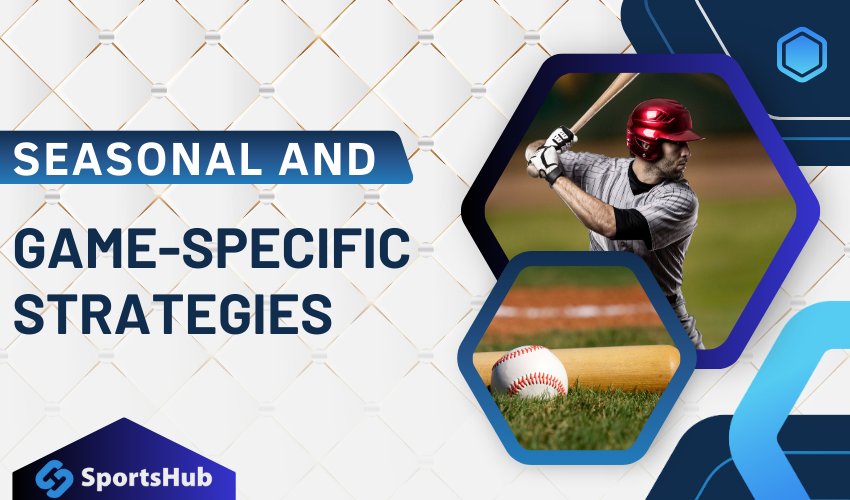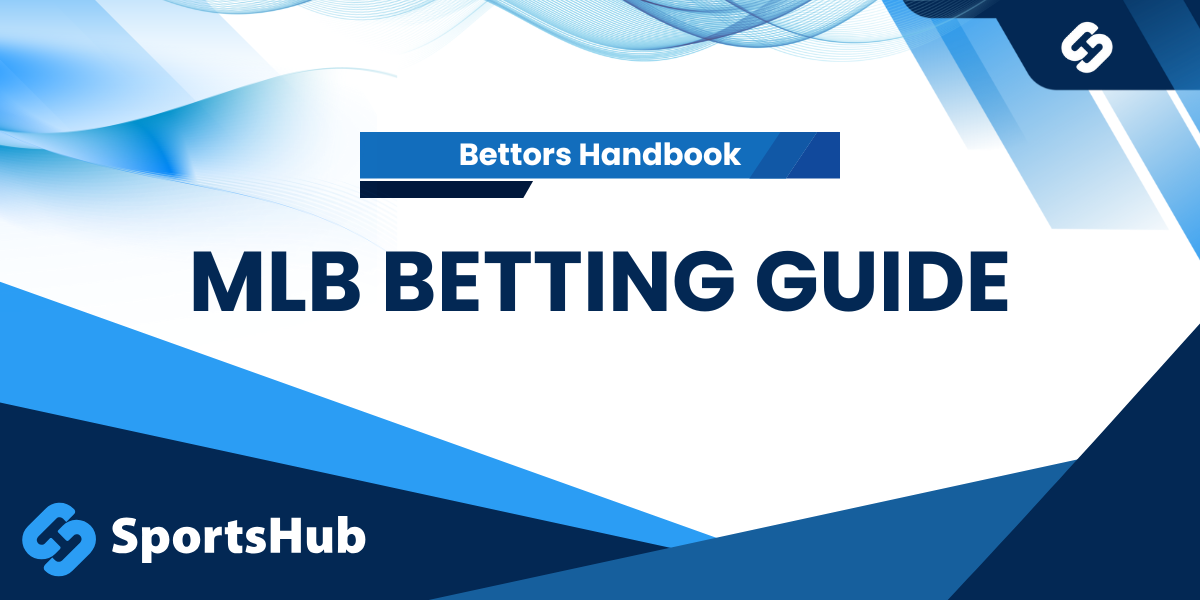MLB Betting Guide: Hitting Your Bets Out of the Park
Betting on Major League Baseball (MLB) can be an exciting and potentially profitable endeavor, but it also requires knowledge, strategy, and discipline. Whether you’re a seasoned bettor or new to the scene, understanding the basics and nuances of MLB betting is crucial. Here’s a beginner’s guide to help you get started:

Analyzing Teams and Players

Analyzing teams and players is essential for making informed bets in MLB. It involves understanding a range of statistics from basic to advanced, evaluating player form, and considering team dynamics such as home field advantage and news like injuries and trades. Here’s a comprehensive guide to the factors and statistics that you should consider:
Key Statistics to Consider
Basic Stats:
- Batting Average (BA): Measures how often a player gets a hit. It’s a good indicator of a hitter’s effectiveness.
- Earned Run Average (ERA): The average number of earned runs a pitcher allows per nine innings. It gives a good measure of a pitcher’s effectiveness.
- Walks Plus Hits per Inning Pitched (WHIP): A measure of how many base runners a pitcher allows per inning. Lower values indicate better performance.
- Home Runs (HRs): Important for understanding the power-hitting ability of a player or team.
Advanced Metrics:
- Wins Above Replacement (WAR): An estimation of how many more wins a player is worth compared to a replacement-level player. Useful for evaluating overall player value.
- Batting Average on Balls in Play (BABIP): Helps to measure how often a player’s balls in play go for hits, excluding home runs. It can indicate luck or skill changes if significantly higher or lower than their career average.
- Fielding Independent Pitching (FIP): Similar to ERA but focuses only on the events a pitcher has the most control over: strikeouts, unintentional walks, hit-by-pitches, and home runs. It can be a better predictor of future performance than ERA.
Evaluating Player Form and Recent Performance
Recent Stats: Look at a player’s recent games to gauge their current form. Are they on a hitting streak? Has a pitcher been unusually dominant or struggling lately?
Injuries: Even minor injuries can significantly affect a player’s performance, so keep updated on health status.
Seasonal Performance: Some players perform better in certain months or halves of the season. This can inform betting decisions, especially in prop bets.
The Impact of Home Field Advantage
Stadium Factors: Some stadiums are known to favor pitchers or hitters. For example, Coors Field in Denver is known for being particularly hitter-friendly due to its high altitude.
Crowd Support: Teams often perform better at home due to familiar surroundings and crowd support. Analyzing home vs. away performance stats can be very telling.
Understanding Team Dynamics and News
- Injuries: Player injuries can impact team performance significantly, especially if key players are involved.
- Trades: Mid-season trades can alter team dynamics and performance, sometimes drastically.
- Team Chemistry: Changes in coaching staff, player relationships, and overall team morale can influence performance.
Incorporating these analyses into your betting strategy requires careful consideration and ongoing research. By keeping up-to-date with both statistical trends and real-world occurrences, you can make more educated decisions and increase your chances of successful betting outcomes in MLB.
Seasonal and Game-Specific Strategies

Betting on MLB games requires a strategic approach that varies throughout the season: from the preseason all the way to the postseason. Here’s a detailed guide on how to adjust your betting strategies across different phases of the baseball season and factors to consider in game-specific scenarios:
Pre-season Betting


Team Improvements and Roster Changes: Analyze offseason moves including trades, free agent signings, and losses. Assess how these changes might affect team dynamics and performance.
Preseason Performances: While preseason results shouldn’t be heavily weighted, the performances of key players, especially new signings and rookies, can offer insights into their readiness and potential impact..
Prospects and Farm Systems: Teams with strong farm systems might bring up young players who can impact the season. Observing these prospects in spring training can provide a betting edge.
Regular Season Strategies


Divisional Games and Rivalry Matchups: Games within the division or historical rivalries tend to be highly competitive. Teams play their divisional opponents frequently, and familiarity can lead to tighter games, which is crucial for betting on money lines and run lines.
Analyzing Scheduling: Look for scheduling quireties like long road trips or a series of games without rest days, which can fatigue players and affect performance.
Utilizing Streaks: Teams or players on a winning or losing streak may carry momentum into a game, which can be a pivotal factor in making betting decisions.
Postseason Betting


Playoff Dynamics: The intensity and pressure of the playoffs can influence games significantly. Some teams and players perform exceptionally under pressure while others might falter.
Adjusting Strategies: In the postseason, the quality of starting pitching and bullpen depth become increasingly important. Evaluate how teams manage their pitchers and how pitchers perform with shorter rest periods.
Head-to-Head Matchups: Historical performance in the playoffs can be a good indicator of a team’s psychological edge over an opponent.
Weather Considerations
- Impact on Play: Weather conditions like wind, rain, or extreme temperatures can significantly affect how a game plays out. For example, wind blowing out can turn a normally pitcher-friendly ballpark into a hitter’s paradise.
- Game Delays: Be aware that weather can cause delays or postponements, affecting pitching rotations and team strategies.
Game-Specific Strategies
- Starting Pitchers: The starting pitcher is one of the most significant factors to consider before placing a bet. Evaluate the pitchers’ recent performances, how they perform against the opposing team, and their history with the current umpire.
- Bullpen Strength: Late game situations can be critical, especially in close games. Teams with strong bullpens have a better chance of holding onto leads.
- In-game Betting: Pay attention to in-game dynamics such as early scoring, changes in pitcher effectiveness, or key in-game injuries. Live betting can offer valuable opportunities based on the flow of the game.
By considering these strategies and adapting to the specific conditions and phases of the MLB season, bettors can enhance their chances of making successful wagers. Each phase of the season offers unique opportunities and challenges that, if navigated wisely, can be very rewarding.
Betting Concepts That Can Be Applied to the MLB

When betting on the MLB, several advanced concepts can significantly enhance your strategy and potentially improve your outcomes. Understanding how to spot value, track market movements, apply sabermetrics, and utilize betting syndicates are key aspects of sophisticated sports betting.
Spotting Value and Understanding Market Movements that Impact MLB Betting
Spotting value (link to Finding Value Bets: A Guide to Value Betting in Sports) in MLB betting involves finding bets where the odds on offer are better than the true probability of the event occurring. This can be crucial, especially in a sport like baseball where the long season and numerous games provide ample opportunities to identify mispriced odds.
For example, understanding the impact of a last-minute pitcher change or recognizing undervalued teams based on recent performance can offer valuable betting opportunities.
Market movements are another critical area to monitor. Odds in MLB can change significantly leading up to a game due to various factors such as player injuries, weather conditions, or substantial wagers placed by influential bettors.
By tracking these movements, you can gain insights into where the ‘smart money’ might be going and why. This requires not only keeping an eye on the odds but also being attuned to news and developments that might affect player availability and team performance.
The Role of Sabermetrics in MLB Betting
Sabermetrics has transformed baseball analysis and betting alike. This approach to understanding baseball through advanced statistics allows bettors to go beyond traditional metrics like batting averages and pitcher wins to look at more predictive indicators such as Wins Above Replacement (WAR), Fielding Independent Pitching (FIP), and weighted On-Base Average (wOBA).
These metrics can help predict future performance more accurately and offer a deeper insight into the game, which is invaluable for betting.
Betting Syndicates and How to Utilize Them
Betting syndicates take advantage of collective resources and knowledge to bet on sports, including MLB. These groups pool money and use sophisticated statistical models to identify value bets. While joining a syndicate may not be accessible for everyone due to their selective nature and the need for a high level of trust, understanding how they operate can be beneficial.
For one, syndicates often force the market to adjust by placing large bets, which can create value opportunities elsewhere. Observing how these bets affect the odds can provide insights into how you might adjust your individual betting strategy.
Incorporating these concepts into your MLB betting strategy can lead to more informed and potentially more profitable betting decisions. Whether you’re analyzing players and teams through a statistical lens, tracking how odds change, or studying the tactics of successful betting groups, each element can add a layer of sophistication to your approach to sports betting.
Avoiding Common Issues That Bettors Run Into

When engaging in sports betting, especially in a complex and varied landscape like Major League Baseball, bettors often run into several common pitfalls that can hinder their success. Understanding these issues and learning how to avoid them can significantly improve your betting strategy and outcomes.

1. Emotional Betting and Biases: One of the most common mistakes in betting is letting emotions influence your decisions. This might mean placing bets on your favorite team regardless of the odds or conditions, or betting against teams you dislike.
Emotional betting can also manifest as confirmation bias, where a bettor only acknowledges information that supports their preconceived notions while ignoring contrary evidence. To counteract this, strive for objectivity. Make decisions based on data and informed analyses rather than personal feelings or attachments.

2. Overvaluing Home Field Advantage: While home field advantage is a real factor in sports, its importance can vary significantly between teams and seasons. In baseball, the impact of playing at home can be less pronounced compared to sports like football or basketball.
Bettors often overestimate this advantage, especially in a sport where the venue’s physical characteristics (like ballpark dimensions and altitude) can play a crucial role. It’s important to assess home field advantage in the context of actual team performance data at home versus on the road, rather than assuming a standard benefit.

3. Misinterpreting Statistics or Trends: Statistics are vital in sports betting, but they need to be used wisely. Misinterpretations occur when bettors take statistics at face value without understanding the context behind them. For instance, a winning streak against low-ranking teams may not be a reliable indicator of performance against a stronger opponent.

4. The Risks of Chasing Losses: This is a common and dangerous trap where bettors try to recover losses by placing increasingly risky bets. This behavior often leads to even greater losses and can escalate into a compulsive gambling problem.
The best way to avoid chasing losses is to maintain strict bankroll management, setting predefined limits on your bets relative to your total available funds. Treat betting as a form of entertainment or a methodical investment rather than a way to make quick money.
By recognizing and understanding these common betting issues, you can develop a more disciplined and effective betting strategy. This involves continual learning, staying updated with the latest data and trends, and maintaining an objective and analytical approach to making betting decisions.
Practical Tools and Resources
For those looking to get serious about MLB betting, having access to the right tools and resources can make a significant difference in your ability to make informed decisions and manage your betting strategy effectively. Here are some essential tools and resources that every MLB bettor should consider:
Fangraphs and Baseball-Reference: These websites offer comprehensive statistics and sabermetrics that are crucial for detailed analysis of teams and players.
Brooks Baseball: Provides in-depth pitching analysis, including pitch types, velocities, and batter outcomes, which is invaluable for assessing matchups.
The Action Network: Offers tracking for bets, real-time odds, and analysis from betting professionals. It’s particularly useful for monitoring line movements and understanding where the money is going.
OddsChecker or BetBud: These apps provide comparative odds across multiple sportsbooks, allowing you to always ensure you’re getting the best value for your bets.
